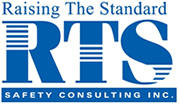Emergency Management
RTSC is excited to be expanding its services into the Disaster & Emergency Management field. Our company has a highly trained and educated staff of emergency managers that develop emergency management plans, procedures and applications for various industries with excellence. Each emergency management plan is customized to meet the needs and assessments of the individual company. Being prepared for emergencies will save your company money, time, people and reputation – don’t wait until it’s too late.
Emergency Plan
RTSC uses an all hazards approach to emergency management planning that includes mitigation, preparedness, response and recovery plans.
Mitigation Plan
The mitigation plan includes policies and procedures on how to reduce the severity of the impacts that our clients would be vulnerable to. This plan ties in closely with a prevention plan, which takes steps to completely prevent certain emergencies from ever having an impact on a company.
Preparedness Plan
The preparedness plan will outline all of the ways in which the company can prepare & prevent the potential hazards from occurring. It also establishes clear and consistent warning systems and strategies for monitoring for potential emergencies. Along with many other components, the preparedness plan will include a contact procedure and a detailed incident command system specific to the client’s employees and company operations. This portion of the plan will be the most effective in saving our clients time, money and resources.
Response Plan
The response plan is a key phase in any emergency. To be able to respond quickly enough that there is little to no damage to your business requires a lot of planning. Within each response plan our client would receive specific recovery strategies and action items to be able to recover efficiently from all of the risks identified. Specific roles for employees are pre-designated so that when the time comes to respond, employees know their role and are confident in it.
Recovery Plan
The recovery plan will outline steps needed to be taken to recover efficiently from any emergency. This plan will ensure that our client loses as little money and reputation as possible. Having a recovery plan can be the difference of a company returning to its standard operations and not being able to.
Hazard Identification and Risk Assessment (HIRA)
Incorporating all of the potential hazard (natural and man-made) that could occur to specific business. Along with the different types of hazards this service incorporates the severity of the impact each risk will have on the company as well as the frequency it could occur and it will identify the types of impacts it will create (ex. environmental, critical infrastructure, psychosocial, etc.)
Business Continuity Plan
A business continuity plan focuses on all of the operations within your company, identifying which operations are critical to the survival of your company and developing plans to ensure that in the event of an emergency those do not go down at all. The difference between an emergency plan and a business continuity plan is that the emergency plan focuses on what to do once operations are stopped by an emergency and a business continuity plan focuses on how to keep your key operations running despite an emergency. In the event that all of your operations may stop working then the business continuity plan will focus on how long your business can survive without its crucial operations and create strategies on how to achieve recovery before that time comes.
Testing & Exercise Plans
Testing and exercise plans provide various ways to get employees prepared and involved in the emergency preparedness process. The plans will start small and have simple emergencies for the employees to practise on. As time passes the exercises will become increasingly difficult leading into a ‘real-world emergency’ in which all of the members of the company would respond and recover. Testing and exercise plans are a crucial way to ensure an organization identifies the gaps in their emergency process and develop ways to successfully respond and recover.
If you are interested in learning more about these services, please contact Shannelle Rozema at ssrozema@rtsconsulting.com.


